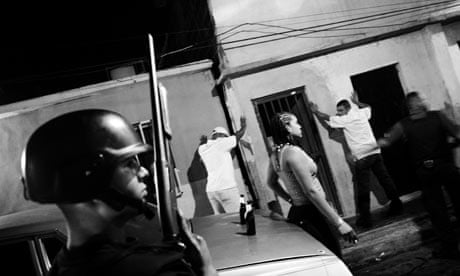Venezuela has banned its press from publishing graphic images of crime and violence for one month, fuelling a row over censorship in the runup to elections.
A court yesterday imposed the "temporary" order on print media, citing a need to protect the "psychic and moral integrity of children and adolescents".
The ruling said: "For the next four weeks, no newspaper, magazine or weekly of the country can publish images that are violent, bloody, grotesque, whether about crime or not."
El Nacional, the paper newspaper which triggered the row last week by publishing an image of a Caracas morgue stacked with bodies, today ran blank spaces with the word "censored" in place of photos, a protest tactic used during the 1950s dictatorship. Its editor, Miguel Henrique Otero, accused President Hugo Chávez's government of trying to cover up a violent crime epidemic to avert a voter backlash in next month's legislative election, saying: "This doesn't have anything to do with … protecting children and juveniles. It's political."
Government officials said media opponents were using gutter press tactics to sensationalise crime, sell newspapers and damage the country's socialist revolution. El Nacional, one of Venezuela's oldest papers, had "degenerated", said Gabriela Ramírez, the media ombudsman.
It may be fined the equivalent of 2% of it annual revenue. Other newspapers which republished the photo – a macabre tableau of about a dozen corpses slumped on trollies – may also be fined.
Those who continue publishing similar images could be shut down. "They should come and put a censor here and tell us what cannot be published," said Otero, with a touch of irony.
Crime regularly tops Venezuelans' list of concerns. In the absence of complete official figures, which are no longer published, watchdog groups estimate 16,000 people are murdered every year.
Dozens die in Caracas each weekend, bloodletting which often exceeds Baghdad's. With less than 7% of cases solved, killers, known as sicarios, act with impunity. Most of the victims are poor young men from slums.
The government has attributes the problem to the extreme income inequalities Chávez inherited upon taking office 11 years ago. It said a new national police force will improve the coordination and performance of hundreds of small state and municipal forces.
Last week authorities moved the women's baseball world championship tournament to militarised stadiums outside Caracas after a Hong Kong player was shot during a game against the Netherlands.
